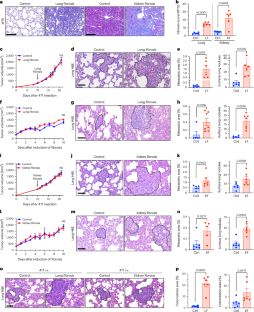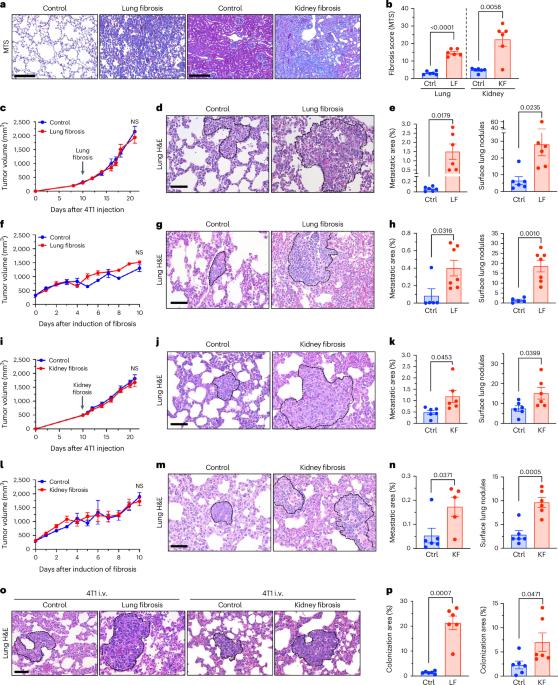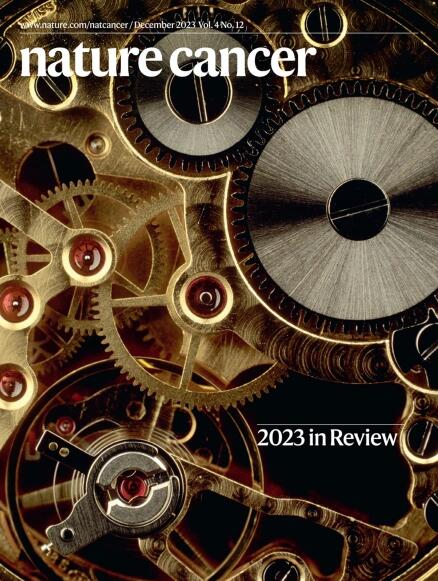Vascular heterogeneity of tight junction Claudins guides organotropic metastasis
IF 23.5
1区 医学
Q1 ONCOLOGY
引用次数: 0
Abstract
Carcinomas are associated with metastasis to specific organs while sparing others. Breast cancer presents with lung metastasis but rarely kidney metastasis. Using this difference as an example, we queried the mechanism(s) behind the proclivity for organ-specific metastasis. We used spontaneous and implant models of metastatic mammary carcinoma coupled with inflammatory tissue fibrosis, single-cell sequencing analyses and functional studies to unravel the causal determinants of organ-specific metastasis. Here we show that lung metastasis is facilitated by angiopoietin 2 (Ang2)-mediated suppression of lung-specific endothelial tight junction protein Claudin 5, which is augmented by the inflammatory fibrotic microenvironment and prevented by anti-Ang2 blocking antibodies, while kidney metastasis is prevented by non-Ang2-responsive Claudins 2 and 10. Suppression of Claudins 2 and 10 was sufficient to induce the emergence of kidney metastasis. This study illustrates the influence of organ-specific vascular heterogeneity in determining organotropic metastasis, independent of cancer cell-intrinsic mechanisms. Kalluri and colleagues use mammary carcinoma models to study the causes of metastatic organotropism and find an organ-specific role for angiopoietin 2 in driving lung metastasis through the suppression of the tight junction protein Claudin 5.


紧密连接克劳丁蛋白的血管异质性引导器官转移
癌细胞会转移到特定器官,而不会转移到其他器官。乳腺癌会发生肺转移,但很少发生肾转移。以这种差异为例,我们探究了器官特异性转移倾向背后的机制。我们利用转移性乳腺癌的自发模型和植入模型以及炎性组织纤维化、单细胞测序分析和功能研究,来揭示器官特异性转移的因果决定因素。我们在这里发现,肺转移是由血管生成素2(Ang2)介导的肺特异性内皮紧密连接蛋白Claudin 5的抑制所促进的,炎症性纤维化微环境增强了这种抑制,而抗Ang2阻断抗体则阻止了这种抑制;肾转移则是由非Ang2反应性的Claudins 2和10所阻止的。抑制 Claudins 2 和 10 足以诱导肾转移的出现。这项研究说明了器官特异性血管异质性在决定器官转移中的影响,与癌细胞内在机制无关。
本文章由计算机程序翻译,如有差异,请以英文原文为准。
求助全文
约1分钟内获得全文
求助全文
来源期刊

Nature cancer
Medicine-Oncology
CiteScore
31.10
自引率
1.80%
发文量
129
期刊介绍:
Cancer is a devastating disease responsible for millions of deaths worldwide. However, many of these deaths could be prevented with improved prevention and treatment strategies. To achieve this, it is crucial to focus on accurate diagnosis, effective treatment methods, and understanding the socioeconomic factors that influence cancer rates.
Nature Cancer aims to serve as a unique platform for sharing the latest advancements in cancer research across various scientific fields, encompassing life sciences, physical sciences, applied sciences, and social sciences. The journal is particularly interested in fundamental research that enhances our understanding of tumor development and progression, as well as research that translates this knowledge into clinical applications through innovative diagnostic and therapeutic approaches. Additionally, Nature Cancer welcomes clinical studies that inform cancer diagnosis, treatment, and prevention, along with contributions exploring the societal impact of cancer on a global scale.
In addition to publishing original research, Nature Cancer will feature Comments, Reviews, News & Views, Features, and Correspondence that hold significant value for the diverse field of cancer research.
 求助内容:
求助内容: 应助结果提醒方式:
应助结果提醒方式:


